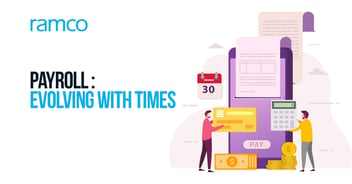
The administrative skill is one of the chief factors to accomplish success in any type of operations. When an inventive approach is required to administer even small scale operations successfully, imagine the level of intricacy with a large scale operation, say by the government, should set strategies to achieve the same. As a matter of fact, any ruling party of the local government will not venture on this aspect, as it is one of the decisive factors in determining the fate of one’s reign. The intellectual approach of governing the operations is indeed a key factor in raising the standards of a nation.
In the pool of miscellaneous government administrations, service provisioning to the public is considered as the massive chunk, which indeed, can be made lucrative with a discerning approach. To be precise, the public makes appeals to the local government requesting them for prime services such as water, electricity and so on. Have you ever thought of the stereotype adopted by the local government, at present, in this regard?
What now?
Presently, a systematic method has not been adopted by the local government to offer the services requested by the public. As a consequence, transparency is not maintained in this realm. A distinct pattern has not been defined with regards to service provisioning for the public, which in turn diminishes the accountability factor. Besides, since an individual’s service consumption record is not maintained, a holistic view of the same is not maintained. Neither, has an intellectual means of tracking the record been adopted by the local government.
The transparency of the tariff structure for consuming the miscellaneous services has also not been maintained. For that reason, it does not provide an opportunity to the user to choose a tariff plan that fits in to one’s budget.
Owing to data segregation and lack of governing skills, the local government is not able to generate a precise, comprehensive report of the project. Since an automated approach has not been adopted, the service provisioning avocations are not carried out in an orderly fashion. Hence, activities related to service provisioning such as device installation, inscribing readings, bill generation and so on are not formulated systematically and the community is not aware of such particulars.
A sequential process is not being followed to recover the overdue amount from an individual for consuming the services. Hence, the government hops into the disconnection phase abruptly, without any prior notices. This could deteriorate the affinity of the government-public relationship radically.
Due to the incongruous strategies used in handling these projects, management of operational costs continues to remain a problem to the government. In addition, a customer portal site is not maintained as part of the system to lodge various customer issues that could provide an opportunity to eliminate similar situations in the future.
What If?
What if we have a system exclusively designed for a specific purpose, intended to rectify a specific flaw?
What if we have a system to collect an individual’s consumption information competently and track the same easily? This could aid in emanating a holistic view of the individual’s record.
What if we have a system to record an individual’s service demands? This could aid in generating reports to understand the requirements of the people.
What if we have a system to define the documents necessary for submission, to procure the services? This could overcome the ambiguity with regards to the prerequisites for availing a service.
What if we have a system to distinctly define the tariff plan to utilize various government services? This could maintain clarity of the tariff schemes, which indeed aids the citizen to select a plan of their choice.
What if we have a system to consummate the human interventions at the individual’s premises to offer the services? This could aid in executing the fieldwork in an organized manner.
What if we have a system explicitly to capture readings at the individual’s premises in the subsequent period of service provisioning? This could aid in executing the reading avocations systematically and hence provide an opportunity to earn a good reputation amongst the public, as it is the vital aspect of charge generation.
What if we have a system to enable alterations on the levied charges? This could provide an opportunity to maintain the transparency with regards to altered charges.
What if we have a system to generate bills and facilitate the consolidation of all the consumed services in a single bill? This could provide a comprehensive view of the consumption pattern, which aids an individual to formulate proposals for the future.
What if we have a system to record the charges of an individual for consuming the services? This could aid in generating precise reports depicting the turnover of the government which aids in the budgeting process.
What if we have a system explicitly to request individuals to make overdue payments, through applicable modes? This could aid in complementing the affinity of public-government relationship.
What if we have a system to enable sequential phases of the recovery process to retrieve the outstanding amount from the citizen? This could overcome the abrupt disconnection of the services, which indeed intensifies the trust of the public.
On the whole, what if we have a system that operates as a sole body, possibly integrating each module that is intended to execute a discrete function, which indeed seals all the possible detriments and lot more in near future?
Along with the additional benefits, what if that system possesses symbiotic traits, that yields revenue to the government as well as gain trust from the community?
What if….I say Yes….
The entire “if” interrogatives are encountering affirmative solutions. Yes, Ramco’s eGovernance comes up with Utility Service & Billing Management Solutions stamped as RMS [Revenue Management System] to aid the administration of service deliveries commendably and to emanate the same via bill.
The USP of “RMS - Utility Services & Billing Management Solutions” is the integration of different modules aiming for the bull’s eye contrivance of idiosyncratic administration of service provisioning, which yields revenue to the government as well as conquers the public trust.
“In any moment of decision, the best thing you can do is the right thing. The worst thing you can do is nothing."
Theodore Roosevelt.
Let’s do the right thing by bringing the stupendous traits in service provisioning by adopting the wise choice of the incredible “RMS-Utility Services & Billing Management Solutions”!!

